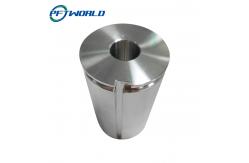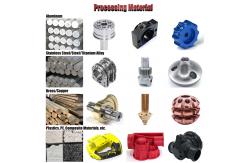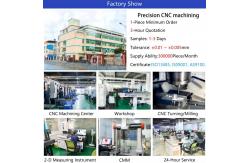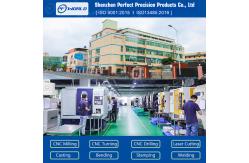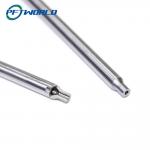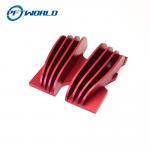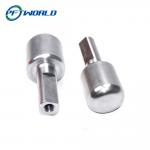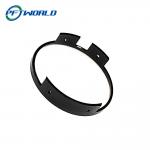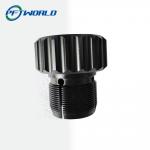|
 
What Are Shaft Parts and Why Are They Important?
Shaft parts are cylindrical components that transfer rotational motion or torque in machinery. They are used across a wide range of applications, from automotive engines and industrial machinery to robotics and aerospace systems. Key shaft parts include:
- Drive Shafts: Transmit power from the engine to other parts of the machinery or vehicle.
- Axles: Support the weight of vehicles while allowing wheels to rotate.
- Spindles: Rotate tools in machinery, especially in CNC systems.
- Crankshafts: Convert the linear motion of pistons into rotational motion in an engine.
The manufacturing of shaft parts requires high precision, as even small deviations in dimensions can cause significant performance issues, including wear, imbalance, and premature failure. Achieving the required tolerances is where precision turning, milling, and compound machining come into play. What is Precision Turning, Milling, and Compound Machining? 1.Precision Turning:
Turning is a subtractive manufacturing process where material is removed from a rotating workpiece using a cutting tool. CNC turning ensures that shaft parts are produced to highly accurate dimensions, making it ideal for cylindrical components such as axles and spindles. It allows manufacturers to produce smooth, round parts with tight tolerances and precise finishes.
2.Precision Milling:
Milling involves removing material from a stationary workpiece using a rotating cutter. CNC milling machines can create complex shapes, features, and surface finishes on shaft parts. This process is used to create parts with intricate details, slots, and grooves that require high accuracy. Precision milling is often used to create flat surfaces, holes, or even threads in shaft parts.
3.Compound Machining:
Compound machining is the combination of both turning and milling operations, typically performed on multi-axis CNC machines. This approach allows for the simultaneous execution of several machining processes, resulting in high efficiency and precision. By integrating both turning and milling into one process, compound machining reduces setup time, minimizes handling, and improves accuracy, making it ideal for manufacturing complex shaft parts with intricate designs.
Key Applications of CNC Precision Shaft Parts
1.Automotive Industry
In the automotive sector, precision shaft parts are essential for various components like axles, drive shafts, and camshafts. These parts must withstand high mechanical stress, vibrations, and varying temperatures. CNC turning and milling allow for the precision manufacturing of automotive shafts that meet stringent performance and durability standards.
2.Aerospace Industry
Aerospace shaft parts must be manufactured to extremely tight tolerances to ensure the safety and reliability of aircraft. Parts like turbine shafts, landing gear spindles, and engine shafts undergo precision machining to maintain strength, reduce weight, and increase the efficiency of the entire system. Compound machining enables the production of these critical components with complex geometries, high accuracy, and low tolerances.
3.Industrial Machinery
Industrial machinery relies on precision-engineered shaft parts such as spindles, drive shafts, and hydraulic shaft components to ensure smooth and reliable operation. The high-precision capabilities of CNC turning, milling, and compound machining provide the exact dimensions and performance needed to support heavy machinery in industries like manufacturing, mining, and construction.
4.Medical Equipment
Precision shaft parts are used in various medical equipment, including diagnostic machines, surgical instruments, and robotics. These parts need to meet strict regulatory standards for both performance and safety. The ability to customize designs using CNC turning and milling ensures that these parts perform as expected in sensitive medical environments.
5.Energy Sector
In power generation and renewable energy, shaft parts like turbine shafts, gear shafts, and generator components require high-strength materials and precision machining to withstand extreme conditions. CNC machining allows manufacturers to produce these parts to exact specifications, ensuring efficiency and reliability in power plants, wind turbines, and other energy-related applications.
Conclusion Precision turning, milling, and compound machining are vital processes for producing high-quality shaft parts that meet the exacting demands of industries like automotive, aerospace, industrial machinery, and more. By choosing these advanced manufacturing methods, companies can achieve superior precision, material flexibility, and faster production times, all while maintaining high-performance standards. | | CNC Turning, CNC Milling, Laser Cutting, Bending, Spining, Wire Cutting, Stamping, Electric Discharge Machining (EDM), Injection Molding,3D Printing,Rapid Prototype,Moulds etc. | | | Aluminum: 2000 series, 6000 series, 7075, 5052, etc. | | Stainlesss steel: SUS303, SUS304, SS316, SS316L, 17-4PH, etc. | | Steel: 1214L/1215/1045/4140/SCM440/40CrMo, etc. | | Brass: 260, C360, H59, H60, H62, H63, H65, H68, H70, Bronze, Copper | | Titanium: Grade F1-F5 | | Plastic: Acetal/POM/PA/Nylon/PC/PMMA/PVC/PU/Acrylic/ABS/PTFE/PEEK etc. | | | Anodized, Bead Blasted, Silk Screen, PVD Plating, Zinc/Nickl/Chrome/Titanium Plating, Brushing, Painting, Powder Coated, Passivation, Electrophoresis, Electro Polishing, Knurl, Laser/Etch/Engrave etc. | | | ±0.002 ~ ±0.005mm | | | Min Ra 0.1~3.2 | | CERTIFICATE | ISO9001:2015,AS9100D,ISO13485:2016,ISO45001:2018,IATF16949:2016,ISO14001:2015,ROSH,CE etc. | 




FAQ 1. Are you a manufacturer or a trading company? We are a factory located in Shenzhen, China, with 20 years of rich experience,
covering 6000 square meters. Complete facilities, including 3D quality inspection equipment, ERP system and 40 machines. If necessary, we can provide you with material certificates, sample quality inspection and other reports. 2. How to get a quote?
Detailed drawings (PDF/STEP/IGS/DWG...), including quality, delivery date, materials, quality, quantity, surface treatment and other information. 3. Can I get a quotation without drawings? Can your engineering team draw for my creativity? Of course, we are also glad to receive your samples, pictures or detailed size drafts for accurate quotation. 4. Can you provide samples before mass production? Of course, the sample fee is necessary. If possible, it will be returned during mass production. 5. What is the delivery date? Generally, the sample lasts for 1-2 weeks and the batch production lasts for 3-4 weeks. 6. How do you control quality? (1) Material Inspection - Check material surfaces and approximate dimensions. (2) First inspection of production - ensure critical dimensions in mass production. (3) Sampling inspection - check the quality before delivery to the warehouse. (4) Preshipment inspection - 100% inspection by QC assistant before shipment. 7. After sales service team If you have any problems after receiving the product, you can provide feedback through voice call, video conference, email, etc. within one month. Our team will provide you with solutions within a week. |

